What Is an Anthology Series?
Are you a fan of anthology TV series? Can you define them and give examples?
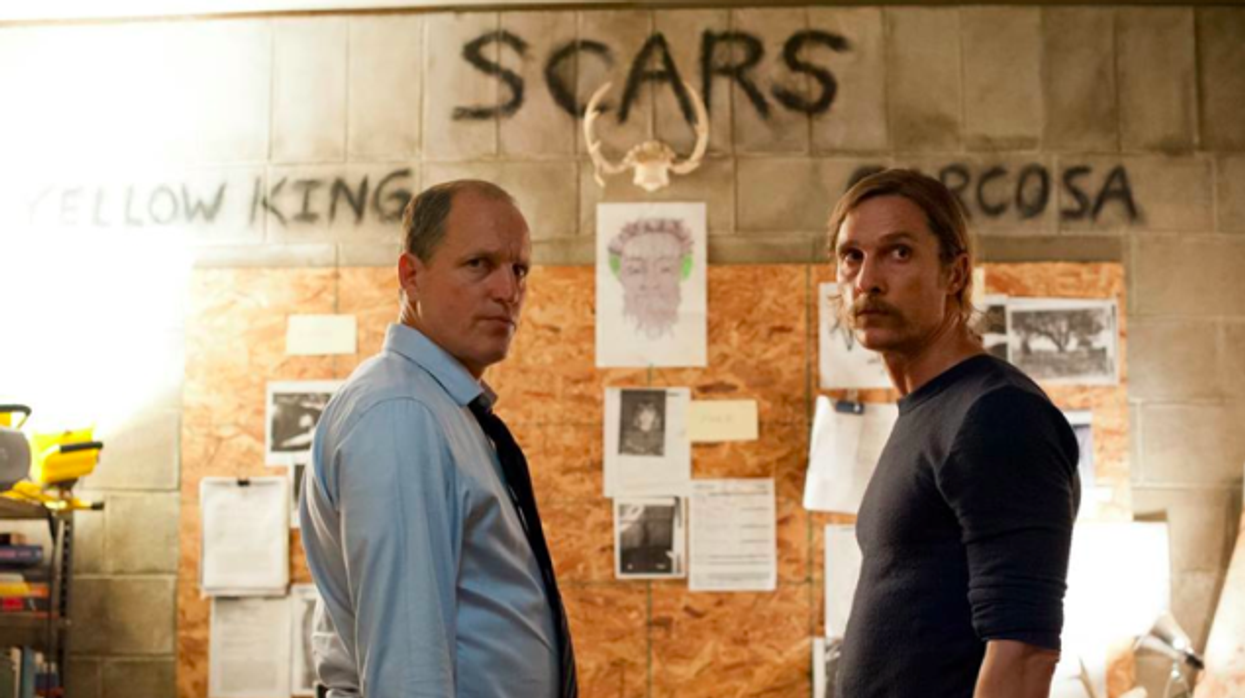
I watch so many TV shows that I can get a little burnt out after a while. Sometimes when you binge or watch multiple seasons with the same characters, you might feel this way too. Well, the anthology series might be your new favorite thing.
They're sort of the best of TV and movies mixed into one thing. It's various plots and characters that take you on new adventures.
But what is an anthology series? And what are some examples of them in TV?
Today we're going to define anthology TV shows and go over a few from Netflix, FX, and all sorts of other channels.
Make sense? Let's get started.
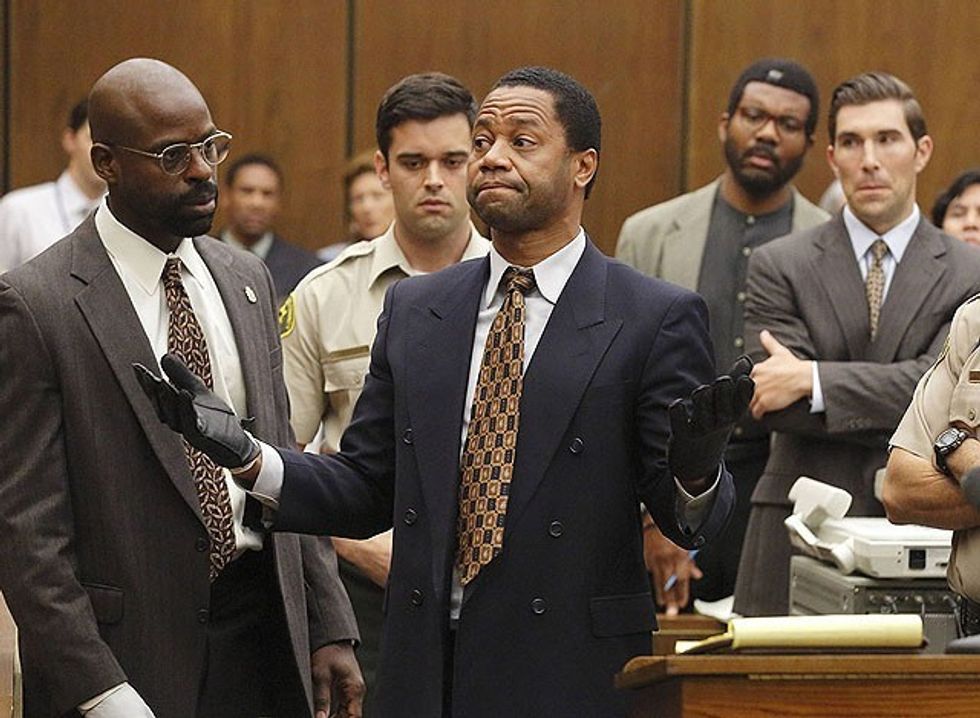
What Is an Anthology Series?
Anthology series cover all sorts of media, from radio to novels to short films to TV shows and so on. The world loves diversity in characters, storylines, and situations. These series open up different seasons and even episodes to change.
Anthology Series Definition
An anthology series is a radio, television, video game, or a film series that presents a different story and a different set of characters. They make these switches in each episode, season, segment, or short, as determined by the creators.
Why Do Writers and Directors Like Anthology Series?
As I mentioned in the opener, as a viewer, I like the contestant switch of characters, situations, and stories. Well, writers and directors like that too. Anthology series allow creatives to play with different genres, characters, and situations while maintaining a clear title.
Series can be sold by genre or by characters or even by place. They have a ton of elbow room for people to play with different ideas. They keep them from getting too stagnant or overstaying their welcome.
What Are the Best Anthology Series?
There are so many excellent series out there. Some of my favorites are American Horror Story, Love, Death, and Robots, and most of True Detective. The ability to change stories and characters has always been interesting to me.
TV shows like The Twilight Zone are sold on the idea that they can change weekly. They explore different big ideas. They can scare you, make you laugh, and even be a place where you can take a small idea and twist it into something larger.
Horror anthologies, TV shows like Tales from the Crypt, do their best to scare people week in and out. where a traditional horror TV show might lose its luster after you get used to the scares, anthologies let you terrify people every week with something different.
I think it's hard just arbitrarily to pick the best. So instead, here are some examples from lots of different genres.
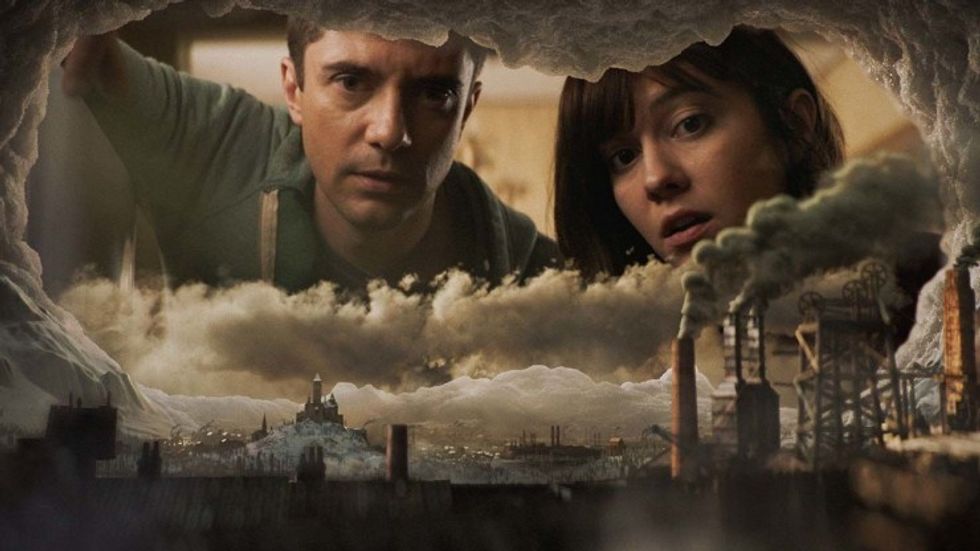
Adult Animation Anthology Series
- The Boys Presents: Diabolical (2022)
- Cake (2019–present)
- Cartoon Sushi (1997–98)
- Greatest Party Story Ever (2016)
- Jokebook (1982)
- Like, Share, Die (2015)
- Liquid Television (1991–1994)
- Love, Death & Robots (2019–present)
- Off the Air (2011–present)
- Party Legends (2016–17)
- Robot Chicken (2005–present)
- Spicy City (1997)
- Sunday Pants (2005–06)
- Children and Family
- ABC Afterschool Special (1972–1997)
- ABC Weekend Special (1977–1997)
- CBS Afternoon Playhouse (1978–1983)
- CBS Children's Film Festival (1967–1978)
- CBS Children's Mystery Theatre (1980–1982)
- CBS Schoolbreak Special (1984–1996)
- CBS Storybreak (1985–1987)
- Disneyland (1954–1958)
- Dramarama (1983–1989)
- Faerie Tale Theatre (1982–1987)
- The Fox Cubhouse (1994–1996) (contains Johnson and Friends, Jim Henson's Animal Show, Rimba's Island, Magic Adventures of Mumfie and Budgie the Little Helicopter)
- It's Itsy Bitsy Time (1999) (contains Budgie the Little Helicopter, 64 Zoo Lane, The Animal Shelf, Tom and Vicky, and Charley and Mimmo)
- Jackanory (UK, 1972–1985)
- Lift Off (1992–1995)
- NBC Children's Theatre (1963–1973)
- Noddy (1998–2000)
- Off to See the Wizard (1967–68)
- Once Upon a Classic (1976–1980)
- Shining Time Station (1989–1993)
- Shirley Temple's Storybook (1958–1961)
- Special Treat, also known as NBC Special Treat (1975–1986)
- Tall Tales and Legends (1985–1987)
- Walt Disney Presents (1958–1961)
- Walt Disney's Wonderful World of Color (1961–1969)
- The Wonderful World of Disney (1969–2009)
- WonderWorks (1984)
- The Wubbulous World of Dr. Seuss (1996–98)
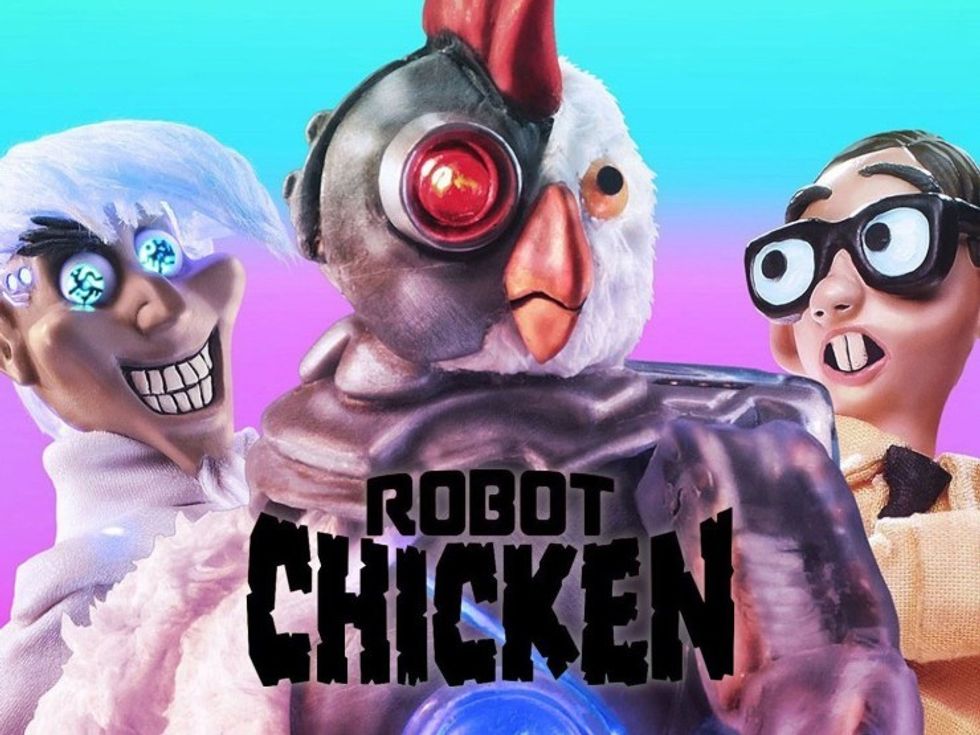
Comedy Anthology Series
- The Comic Strip Presents... (1982–2015)
- Carol and Company (1990–91)
- Cilla's Comedy Six (UK, 1975)
- Cilla's World of Comedy (UK, 1976)
- Comedy Lab (1998–)
- Comedy Playhouse (UK, 1961–2014)
- Dear Uge (2016–)
- Dr. Terrible's House of Horrible (2001)
- The Eddie Cantor Comedy Theatre (1955)
- El Chapulín Colorado (1973–1979)
- Ripping Yarns (UK, 1978–79)
- George Burns Comedy Week (1985)
- Good Heavens (1976)
- The Guest Book (2017–2018)
- High Maintenance (2012–2015, 2016–present)
- Human Remains (2000)
- Inside No. 9 (2014–)
- Oboler Comedy Theater (1949)
- Love, American Style (1969–1974)
- Miracle Workers (2019–present)
- Murder Most Horrid (UK, 1991–1999)
- The Ronnie Barker Playhouse (UK, 1968)
- Seven of One (UK, 1973)
- Six Dates with Barker (UK, 1971)
- Undressed (1999–2002)
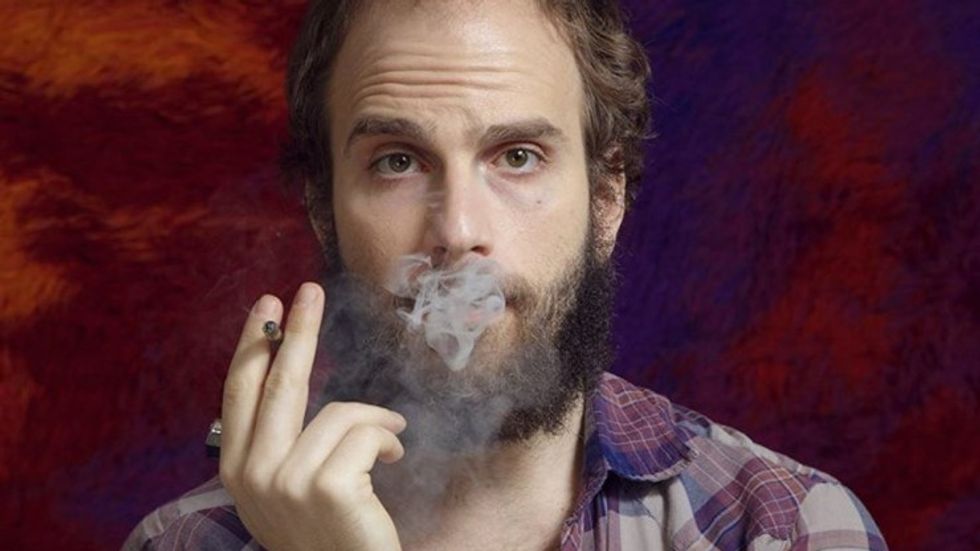
Crime Anthology Series
- Adventure Theater (1956)
- American Crime (2015–2017)
- American Crime Story (2016–)
- Agatha Christie's Marple (UK, 2005–2014)
- Agatha Christie's Poirot (UK, 1989–2014)
- The Big Story (1949–1958)
- The Black Robe, also known as Police Night Court (1949–1950)
- Crime Patrol (2003–)
- Fargo (2014–)
- FBI: The Untold Stories (1991–1993)
- Gang Busters (1952, 1954–55)
- Lawbreakers (1963–64)
- The Man Behind the Badge (1953–1955)
- Official Detective (1957–58)
- Police Call (1955)
- Police Story (1952)
- Police Story (1973–1978)
- Tatort (1970–)
- The Rivals of Sherlock Holmes (UK, 1971–1973)
- They Stand Accused (1949–1952, 1954)
- True Detective (2014–2019)
- Underbelly (2008–)
- The Walter Winchell File (1957–58)
- The Whistler (1954–55)
- The Sinner (2017–2021)
- Educational
- Inside/Out (1972–73)
- Omnibus (US, 1952–1961)
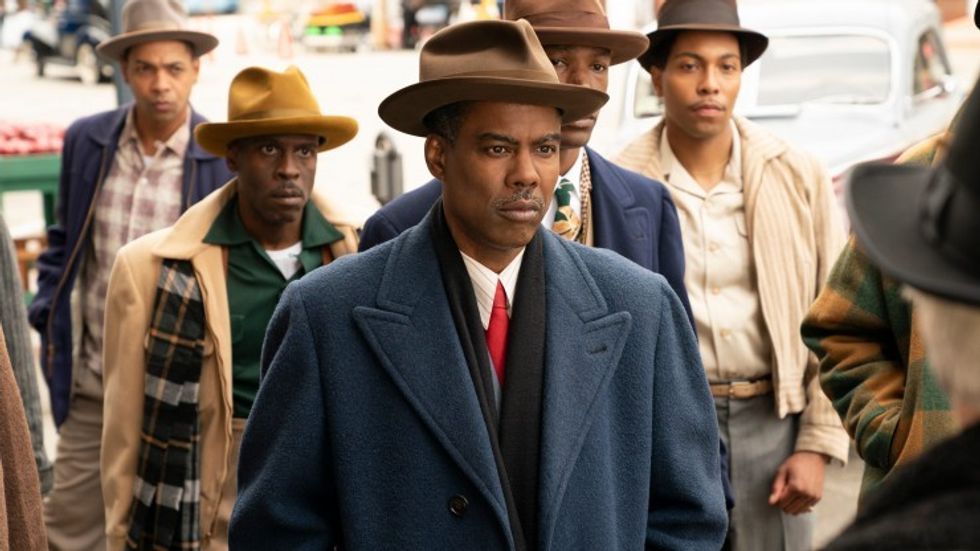
Historical Anthology Series
- Captain Newfoundland from the Tip of Atlantis/Captain Atlantis Late Night (Canada, 1972–present)
- The Great Adventure (1963–64)
- Our American Heritage (1959–1961)
- Profiles in Courage (1964–65)
- Saga of Western Man (1963–1969)
- You are There (1953–1957)
Medical Anthology Series
- The Doctor, also known as The Visitor (1952–53)
- Medic (1954–1956)
- Medical Story (1975–76)
Military Anthology Series
- Flight (1958–59)
- Men of Annapolis (1957–58)
- Navy Log (1955–1958)
- The Silent Service (1957–1959)
- The West Point Story aka West Point (1956–57)
- Mystery and suspense
- Alfred Hitchcock Presents (1955–1965)
- Alfred Hitchcock Presents (1985–89)
- Behind Closed Doors (1958 TV series) (1958–59)
- The Best in Mystery (1954)
- The Boris Karloff Mystery Playhouse (1949)
- Byline, also known as Adventures in Mystery and News Gal (1951)
- The Chevy Mystery Show (1960)
- The Clock (1949–1952)
- Danger (1950–1955)
- Dark of Night (1952–1954)
- Darkroom (1981–82)
- Dow Hour of Great Mysteries (1960)
- The Edgar Wallace Mystery Theatre (US TV version of British theatrical second features, 1960–1965)
- Escape (1950)
- Escape (1973)
- Espionage (1963–64)
- Eye Witness (1953)
- Fallen Angels (1993–1995)
- George Sanders Mystery Theater (1957)
- Gun (1997)
- Hands of Mystery, also known as Hands of Destiny, Hands of Murder (1949–1952)
- The Hitchhiker (1983–1987)
- I Spy (1955–1957)
- Inner Sanctum (1954)
- Invitation Playhouse: Mind Over Murder (1952)
- Kraft Mystery Theatre (Summer 1961, 1962, 1963)
- Kraft Suspense Theatre (1963–1965)
- Mr. Arsenic (1952)
- Murder in Mind (2001–2003)
- Murder Most Horrid (UK, 1991–99)
- Mystery! (1980–)
- Panic! (1957–58)
- Philip Morris Playhouse (1953–54)
- Rebound, also known as Counterpoint (1952–53)
- Scene of the Crime (1991–92)
- Stage 13 (1950)
- Sure as Fate (1950–51)
- Suspense (1949–1954)
- Suspicion (1957–58)
- Target (1958)
- Twisted Tales (1996–97)
- Two Twisted (2006) (Sequel to Twisted Tales)
- The Vise (1955 TV series) (1955–57)
- Volume One (1949)
- The Web (1950–1954)
- The Web, syndication title Undercurrent (1957)
- Your Play Time (1953–1955)
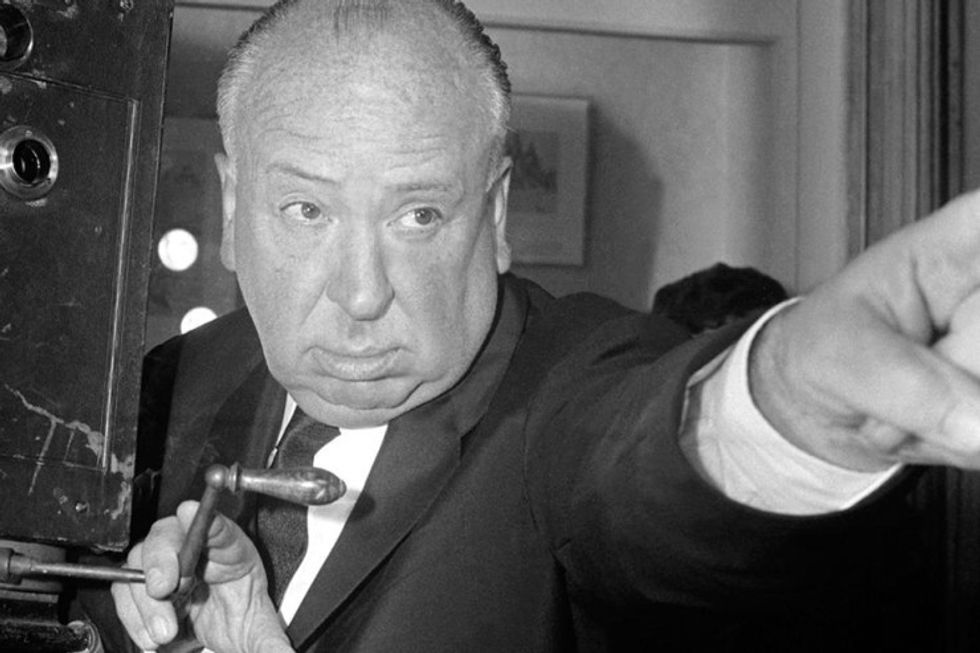
Science Fiction and Horror Anthology Series
- Alcoa Presents: One Step Beyond
- Amazing Stories (original series)
- Amazing Stories (reboot)
- American Horror Story
- American Horror Stories
- Are You Afraid of the Dark?
- Beyond Belief: Fact or Fiction
- Black Mirror
- Castle Rock
- Channel Zero
- Chiller
- Darknet
- Dark Realm
- Deadtime Stories
- Dimension 404
- Electric Dreams (2017 TV series)
- Exposure
- Fantasy Island
- Fear and Fancy
- Fear Itself
- The Fearing Mind
- Freddy's Nightmares – A Nightmare on Elm Street: The Series
- Friday the 13th: The Series
- Ghost Stories
- Ghost Story
- Goosebumps
- Great Ghost Tales
- A Haunting
- The Haunting
- Historias para no dormir
- The Hunger
- Infinity Train
- Inside No 9
- Into the Dark
- Journey to the Unknown
- Lee Martin's The Midnight Hour
- Lights Out
- Lore
- Love, Death & Robots
- Masters of Horror
- Masters of Science Fiction
- Métal Hurlant Chronicles
- Monsters
- Mystery and Imagination
- Night Gallery
- Night Visions
- The Nightmare Room
- Nightmare Cafe
- Nightmares & Dreamscapes: From the Stories of Stephen King
- Out of the Unknown
- Out of This World
- Out There
- The Outer Limits
- The Outer Limits
- Perversions of Science
- Play for Tomorrow
- Quinn Martin's Tales of the Unexpected
- The Ray Bradbury Theater
- R.L. Stine's The Haunting Hour
- Room 104
- Science Fiction Theatre
- Scream
- Slasher
- Strange Stories
- Tales from the Darkside
- Tales from the Crypt
- Tales of Mystery
- Tales of Mystery and Imagination
- Tales of the Unexpected
- Tales of Tomorrow
- The Terror
- Thriller
- Trapped
- The Twilight Zone (original series)
- The Twilight Zone (first reboot)
- The Twilight Zone (second reboot)
- The Twilight Zone (third reboot)
- The Unexpected
- Urban Gothic
- The Veil
- Way Out
- Welcome to Paradox
- What If...?
- Star Wars: Visions
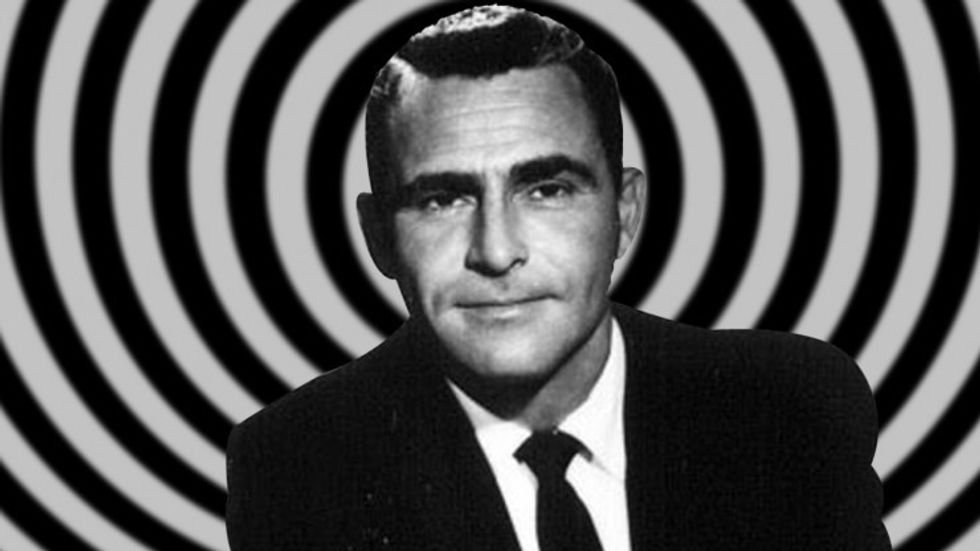
What Are Keys to Writing An Anthology Series?
Writing an anthology series presents a unique set of challenges and opportunities compared to traditional serialized storytelling. Here are some key considerations and steps to keep in mind when developing an anthology series:
- Theme or Concept:
- Identify a unifying theme or concept that ties together each installment. Whether it's a genre (e.g., horror as in "The Twilight Zone") or a more abstract theme (e.g., technology's impact on society as in "Black Mirror"), having a strong central theme will give your anthology coherence.
- Diverse Voices:
- Given that each episode or installment will be its own unique story, it's a chance to bring in different writers, directors, and actors for each. This diversity can provide a richness of perspectives, styles, and voices.
- Consistent Tone:
- Despite varying stories and possibly varying creators, maintain a consistent tone throughout. This could be achieved through similar pacing, mood, visual aesthetics, or musical choices.
- Character Development:
- Since each story will be relatively short, characters need to be quickly and effectively established. Dive into the heart of the characters' motivations and conflicts to immediately draw the audience in.
- Self-Contained Stories:
- Each installment should be satisfying on its own. While some anthologies might have subtle connections or Easter eggs between episodes, each episode should have a clear beginning, middle, and end.
- Varied Storytelling:
- One of the joys of an anthology series is the opportunity to experiment. Consider varying the structure, setting, time period, or narrative style from one episode to the next.
- Connection to Contemporary Issues:
- Many successful anthology series resonate because they tap into current societal fears, hopes, or dilemmas. Think about the larger themes or questions you want to explore and how they relate to the world today.
- Satisfying Endings:
- Given the standalone nature of each installment, it's important to provide resolutions that feel both unexpected and earned.
Summing Up "What Is An Anthology Series?"
Now that you know what an anthology series is, you can go create your own. Enjoy the freedom of writing new characters and worlds with each season or episode.
Before you go, let us know what your favorite anthology series is in the comments!
- Essential Tips for Filming Indie Sci-fi on a Tight Budget ›
- How 'True Detective' Portrayed Realistic Characters? ›
- Adam McKay Is Developing a Corona Vaccine Series (Hopefully with a Happy Ending) ›
- Which Is Better: Binge or a Weekly Release TV Show? ›











